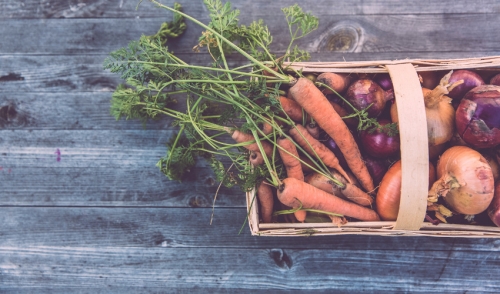{article.name} Monthly Blog Articles
WE DELIVER
Peterborough, NH: 603-924-6801 Brattleboro, VT: 802-254-8755 Walpole, NH: 603-756-9400 Hillsboro, NH: 603-464-3755 Milford, NH: 603-673-1669 Keene, NH: 603-357-5720Indoor Vegetable Garden

- Share this:
- Share on Facebook
- Pin on Pinterest
- Tweet on Twitter
You don't need a huge plot of land or the perfect climate to grow vegetables. It can be fun and productive to have an indoor vegetable garden, but indoor gardening is different from outdoor gardening and does take some special care.
Benefits of Indoor Gardens
Many people assume that an indoor garden is more work and could be less useful than outdoor gardens, but indoor gardens are…
- Small Space Friendly: An indoor garden is ideal for anyone who has a small yard without much space for growing vegetables. Indoor gardens are also perfect for apartments or condos that do not have yards, as well as for classrooms or senior homes that may not have much outdoor space available.
- Easier to Control: Because indoor gardens are grown in containers, it is easier to control unwanted weeds and pests. This makes garden chores much more manageable, particularly for beginning gardeners, kids interested in exploring gardening, older gardeners with limited mobility or busy gardeners who don't always have the time to care for a larger garden.
- Usable Year Round: Indoor vegetable gardens do not depend on seasonal temperatures, sunlight levels or rainfall. It is easy to grow veggies indoors year round, providing a source of fresh, nutritious vegetables no matter what the outdoor weather is like or what produce may be available from local markets. A winter vegetable garden can be especially inexpensive when imported produce is even more costly, or can be ideal for growing vegetables that wouldn't normally grow in the local climate.
Vegetables to Grown Indoors
Many different vegetables can thrive in the proper indoor conditions. It is important to select varieties that will be welcome on your table so the gardening effort is not wasted, and the most popular and delicious vegetables to grow indoors include…
- Beets
- Bell peppers
- Carrots
- Eggplants
- Green beans
- Lettuce
- Mushrooms
- Onions
- Potatoes
- Radishes
- Scallions
- Tomatoes
The exact types of these vegetables that will grow indoors may vary, and dwarf, mini or other small varieties will often do best. And don't forget herbs – they can be a delicious addition to many salads and other vegetable dishes.
Tips for Your Indoor Vegetable Garden
Your indoor garden will have different space, light and moisture needs depending on which vegetables you choose to grow. To make the most of your indoor vegetable garden…
- Study different vegetable types to determine their sunlight, moisture and soil depth needs, and plan pots and plant locations accordingly. Grouping plants with similar needs together will help make their care easier.
- Choose a garden location with adequate space for plants' full growth, keeping plants away from drafty windows or vents. Tables, shelves, mantles and counters are all good choices for where to grow your garden.
- Use a good quality potting mix for your indoor garden, not soil from the outdoor garden. Potting mixes are richer with more organic material to nourish potted plants, and do not have the weed seeds, insects and harmful bacteria that could be present in garden soil.
- Keep pets away from the indoor garden. Some plant foliage can be potentially toxic to pets, and you don't want pets eating your veggies prematurely. Nibbling, clawing or licking the plants can also damage their growth, reducing the potential harvest.
- Consider adding supplemental lighting to help enhance plants' growth. This is especially important for winter indoor gardening when natural sunlight is greatly reduced. Without adequate light, the harvest will be spotty and weak.
- Keep the humidity higher for healthier plants. Indoor humidity levels are lower than the natural humidity outdoors, and plants may need regular misting to keep their foliage supple and healthy. Adding a humidifier or grouping plants together can help humidity levels as well.
With care and dedication, indoor vegetables can be a delightful and delicious addition to your gardening, and you will enjoy fresh, nutritious vegetables right from the garden all year long.



Comments